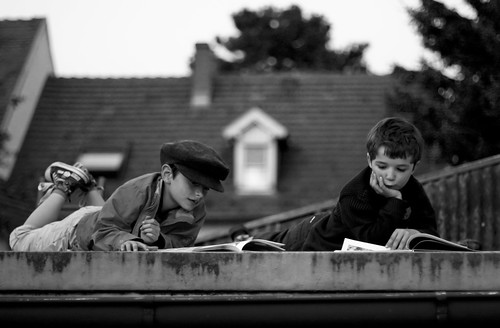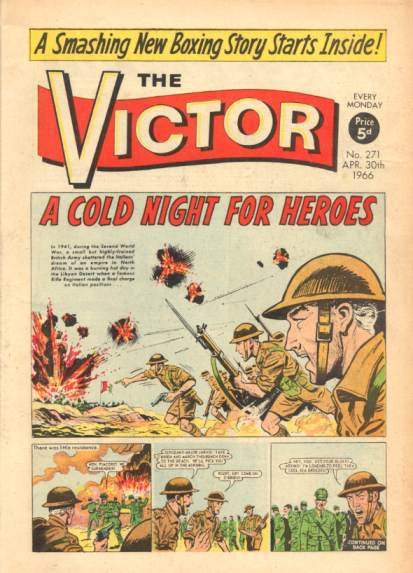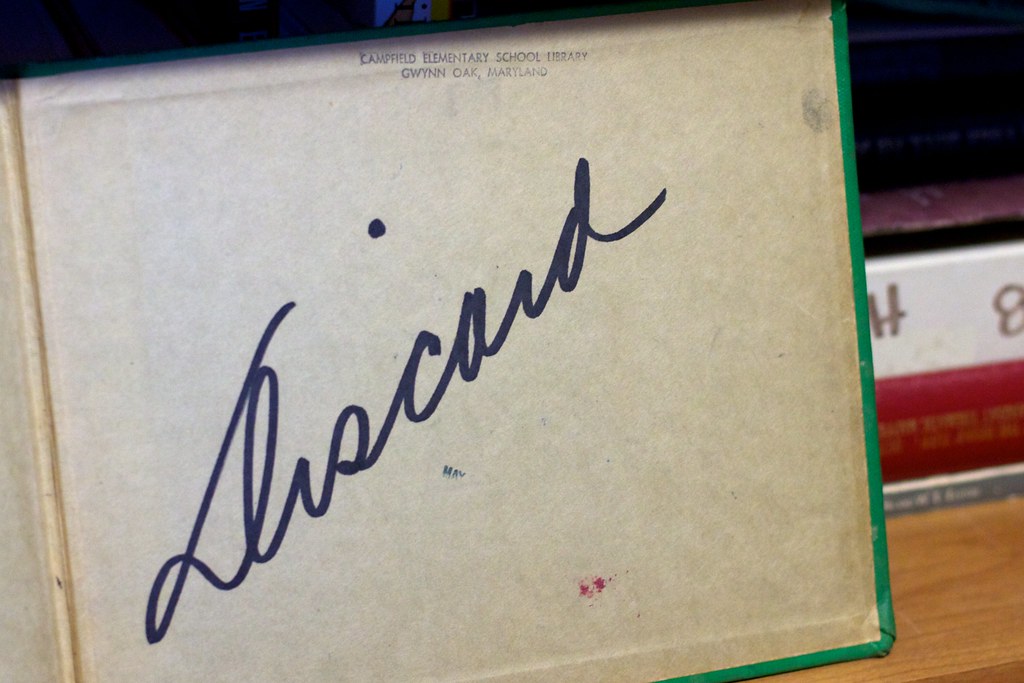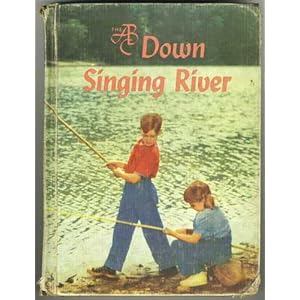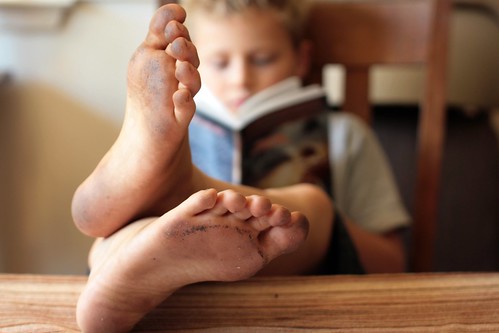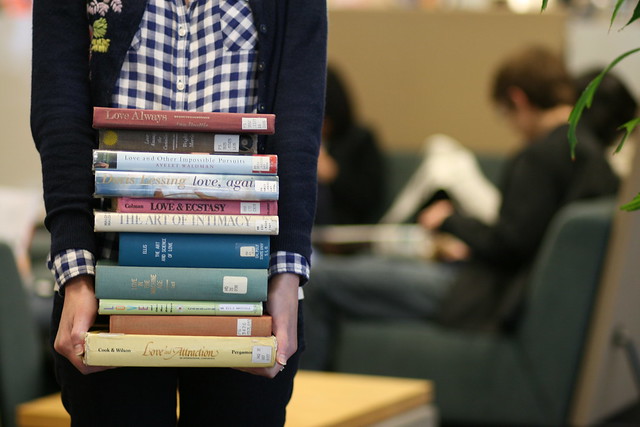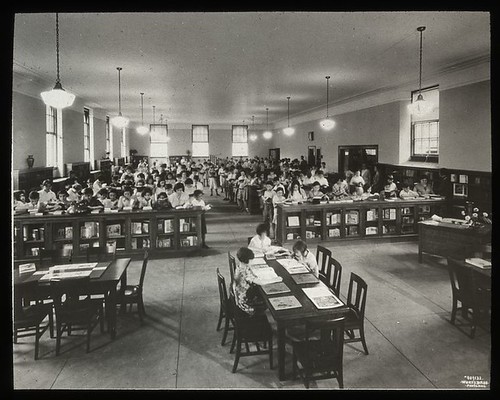Last week's library post came from Dublin writer and editor John Kenny, and this week What She Might Think is staying abroad though one country over with English fantasy writer Juliet McKenna.
McKenna was not only a frequent visitor of the library but also a voracious reader to boot and, thankfully, one with an excellent memory of what she read. Please enjoy McKenna's library reflection.
*
McKenna was not only a frequent visitor of the library but also a voracious reader to boot and, thankfully, one with an excellent memory of what she read. Please enjoy McKenna's library reflection.
ALL SORTS OF FREEDOM
by Juliet E. McKenna
I’d tell my mum I was going to the library
and she felt no need to accompany me.
 |
| Photograph by Mike Smith, used under CC license |
Once upon a time, these villages each had their own amenities. As a kid I didn’t know that this building was originally a fire station. I just knew it was old, half-timbered, with uneven floors and unexpected steps and nooks inside. The heavy double door in the other face of that tower is framed by elegantly carved stone. For a child with a vivid imagination first inspired and thereafter nurtured by books, what better library?
In the mid-Seventies, some village mentality endured. Most local shops were family businesses and whether through ignorance or innocence, by age ten, children like me went out and about pretty much unsupervised. I’d tell my mum I was going to the library and she felt no need to accompany me. She knew I would use the pedestrian crossings for the busiest roads and it was traffic, not child-snatchers, which concerned parents. So I could go whenever I liked and browse for as long as I wanted.
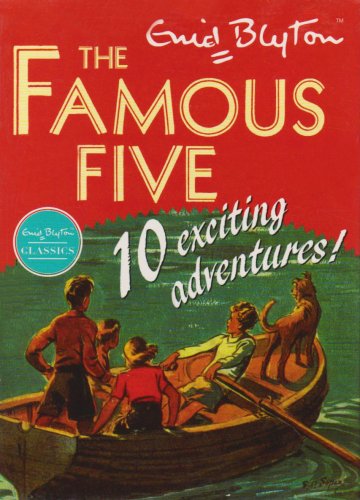 |
Enid Blyton is one of
the most famous children's
authors in England. It is a rare
adult who didn't read Blyton as
a child.
|

I could re-read a book for the twentieth time for the comfort of familiarity. I could read something I was supposed to have long outgrown, like BB’s books about a badger and a hedgehog living on a canal boat and striving to outwit a gang of rascally cats. If my mood was looking forward to the whole mysterious business of growing up, I could read Monica Edwards’ books about overlapping groups of teenagers living in Romney Marsh and in Surrey; contemporary stories involving far more plausible, and thus more convincingly hazardous escapades than anything the Adventurous Four got up to. This was long before anyone thought of labelling books as ‘YA’ and putting them on their own shelves.
I might come home with some of R J Unstead’s interesting and engagingly illustrated books on the history of Britain and beyond (okay, mostly the British Empire). I could scare myself at bedtime with the Pan Book of Witches or the Pan Book of Giants, only two of many collections of folklore and myth specifically made accessible to children. I might read boys’ adventure stories, set in and around World War II or the ‘juvenile’ science fiction of Heinlein and Asimov. I didn’t care that they were all from a male point of view. Whatever I read was up to me.
Well, up to a point. The Dorset County Library system had two types of tickets to hold the record slips from the books, held behind the desk as the loan was date-stamped and issued. Adult tickets and child tickets were colour-coded like the book slips to make sure that children didn’t read anything unsuitable. We could have adult tickets when we went to secondary school at the age of eleven. Only by the time I was ten, I had read and re-read every book in the children’s section. The nice library ladies knew that; we were on first name terms after all. That’s to say, they called me Juliet while I called them Mrs Brown and Mrs Green.
 |
I could venture
into the adult shelves,
grab anything with a
Gollancz yellow jacket.
|
I also read Heinlein’s I Will Fear No Evil, in which a dying billionaire’s brain is transplanted into a young woman’s body. To quote Wikipedia “Much of the book is devoted to a description of Joan's exploration of emotional and sexual love from the point of view of her new gender.” I’ll bet the nice lady librarians had no idea about that when they date-stamped the book. Perhaps I was too young for such ‘adult content’ but bear in mind that all I had was the words on the page. There’s only so far words can take you without the visual images to go with them which I most assuredly lacked. It was a more innocent age with far less overtly sexualized behaviour on view in popular culture. And such books can be vital stepping stones on the path from ignorance which has at least as many dangers as children grow up.
The library offered me freedom to entertain and to educate myself, at my own pace, at my own whim. To scare myself, to comfort myself, to discover the limits of my own understanding of adult life (with so many more complications than merely sex) and to decide for myself how and when I wanted to challenge such boundaries in my reading. All sorts of freedom within the safe confines of the original virtual reality: the world of books and imagination.
*
 |
| Juliet McKenna, photo by Ian Whates, used with photographer's permission |
Juliet E. McKenna lives in West Oxfordshire with her husband and children. She is a prolific author of fantasy novels, such as The Tales of Einarinn series, The Aldabreshin Compass series, and the trilogies The Chronicles of the Lescari Revolution and The Hadrumal Crisis. When she isn't writing fiction, she is often speaking about writing and reading at science-fiction and fantasy conventions across Europe.
To find books by Juliet E. McKenna at your library, use worldcat.org, click here, or ask your librarian!
To find books by Juliet E. McKenna at your library, use worldcat.org, click here, or ask your librarian!
